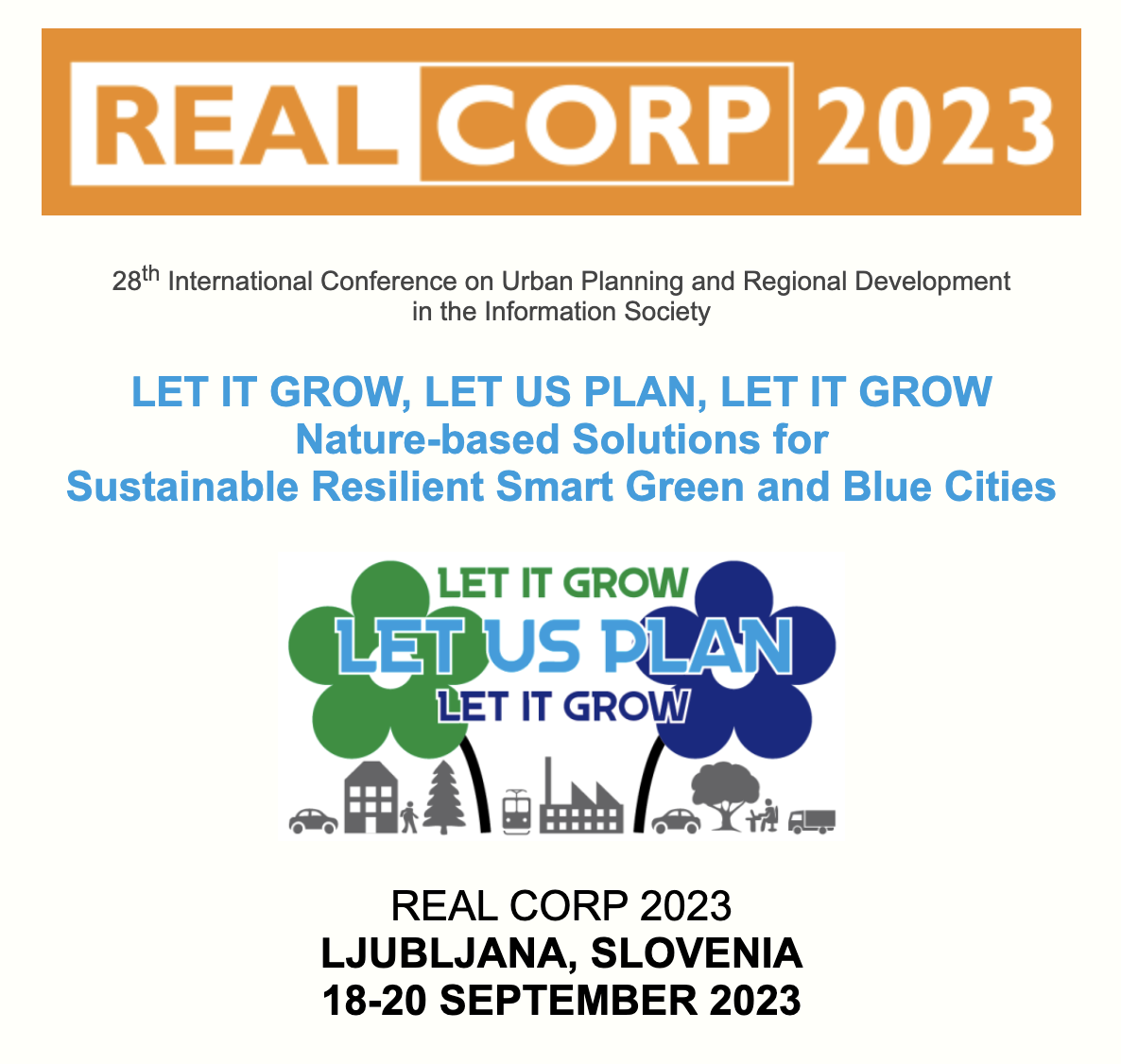A constantly growing world (around 8 billion people now, 9.7 billion to be expected by 2050 [1]) with constantly expanding cities and urban agglomerations is facing various challenges such as scarcity of resources, infrastructure provision security, risk of disasters, global warming or ageing of the population. These topics have to be seen as global challenges which are unevenly distributed across the world regarding the dynamics of those phenomena and their geogeaphic location.
Are Nature-Based Solutions the key to liveable, sustainable, resilient cities even under the threats of climate change? Is it just about greening the cities and their green and blue infrastructures? What is the context of their technological developments and social innovation?
What are Nature-Based Solutions (NBS)? The International Union for Conservation of Nature (IUCN) defines them as actions to protect, sustainably manage, and restore natural or modified ecosystems. These actions address societal challenges effectively and adaptively, and simultaneously provide human well-being and biodiversity benefits with common societal challenges. [2, 3] Another perspective of NBS is solutions that use ecological and environmental services to address contemporary environmental, social and economic challenges. [4]
NBS are definitely being understood well beyond greenery or only biotic nature. There are strong relations with topics such as liveability, social cohesion and human activities, and urban planning, architecture and design as key disciplines. Thus, beside green and blue (water) infrastructure as currently the most often addressed manifestation of NBS in cities, REAL CORP 2023 suggests to reflect also on the physical processes and materials (abiotic nature) as inevitable parts of nature. These can bes seen in connection with parameters of urban planning, such as morphology, land use, availability of space for (land) use occupancy etc. These physical world processes are also part of nature, especially as the properties of locations and sites that may well dictate their further development as well as the selection of suitable NBS for implementation at these specific locations.
NBS that directly use natural processes (e. g. natural terrain with high vegetation, which in urban areas is most often associated with a park), especially in dense urban patterns, are generally more difficult to implement due to spatial as well as economic constraints. NBS that may be more appropriate in such situations may come from a set of ideas and proposals that “mimic” nature. Here, it is important to note that nature is made up of both biotic and abiotic components. For example, in terms of reducing the occurrence of heat islands in cities, solutions can be found in the selection of suitable building materials and their appropriate treatment, appropriate physical characteristics of the components of abiotic nature, optimum orientation of buildings and their compositions on the sites, as this can influence the natural ventilation of the rooms (micro scale) or area (macro scale).
Other open questions include ways in which NBS can be addressed in various spatial planning documents and processes and how can the capabilities of NBS be used in effective policy making and implementation.
At REAL CORP 2023 we would like to highlight the following main topics:
- Urban Design and Planning Driven by Nature-Based Solutions (NBS)
- Urban Morphology and Landscape
- Adoptive Architecture and Multifunctional Spaces
- Urban Regeneration
- Systems of Green and Blue Infrastructure
- Sustainable Resources and Infrastructure Management
- Urban Agriculture
- The Human Scale and Quality of Life (also in the Context of an Ageing Society)
- Public Health and Well-Being
- Climate Change Mitigation and Adaptation, Air Quality Improvement
- Urban Heat Islands and Urban Microclimate
- Urban Policy
- Socially Sustainable and Responsible Mobility
- Lessons Learnt from Covid-19 – Post-Pandemic Perspectives
- Co-Creation and Community Engagement (especially Engaging Underrepresented and Marginalized Communities)
- Data and Information Infrastructure – an Indispensable Prerequisite for Managing Cities and Regions
For all these topics REAL CORP 2023 asks especially about
- The role of urban planning and related disciplines
- Digitisation and technological innovation
- Short term measures, long range perspectives
- Ongoing research, new ideas, best practise examples, case studies
Timeline
Submission of abstract until 15 April 2023
Feedback on general acceptance until 30 April 2023
Full paper for reviewing has to be submitted until 15 June 2023
Double blind full paper review until 15 July 2023
Final version of full paper for publication until 31 August 2023
(The final full paper for non-reviewed submissions needs to be handed in by 31 July 2023.)
Registration
To register and submit your abstract, please go to https://my.corp.at and sign up for conference participation. (If your abstract is not accepted, you may withdraw your registration free of charge. If your abstract is accepted, your registration is automatically confirmed.) As usual, all further information as well as all conference papers since 1996 are available at www.corp.at.
REAL CORP 2023 is a co-operation of
- CORP – Competence Center of Urban and Regional Planning
- UIRS – Urban Planning Institute of the Republic of Slovenia, https://www.uirs.si
- University of Ljubljana, Faculty of Architecture, https://www.fa.uni-lj.si
- ISOCARP – International Society of City and Regional Planners, https://www.isocarp.org

